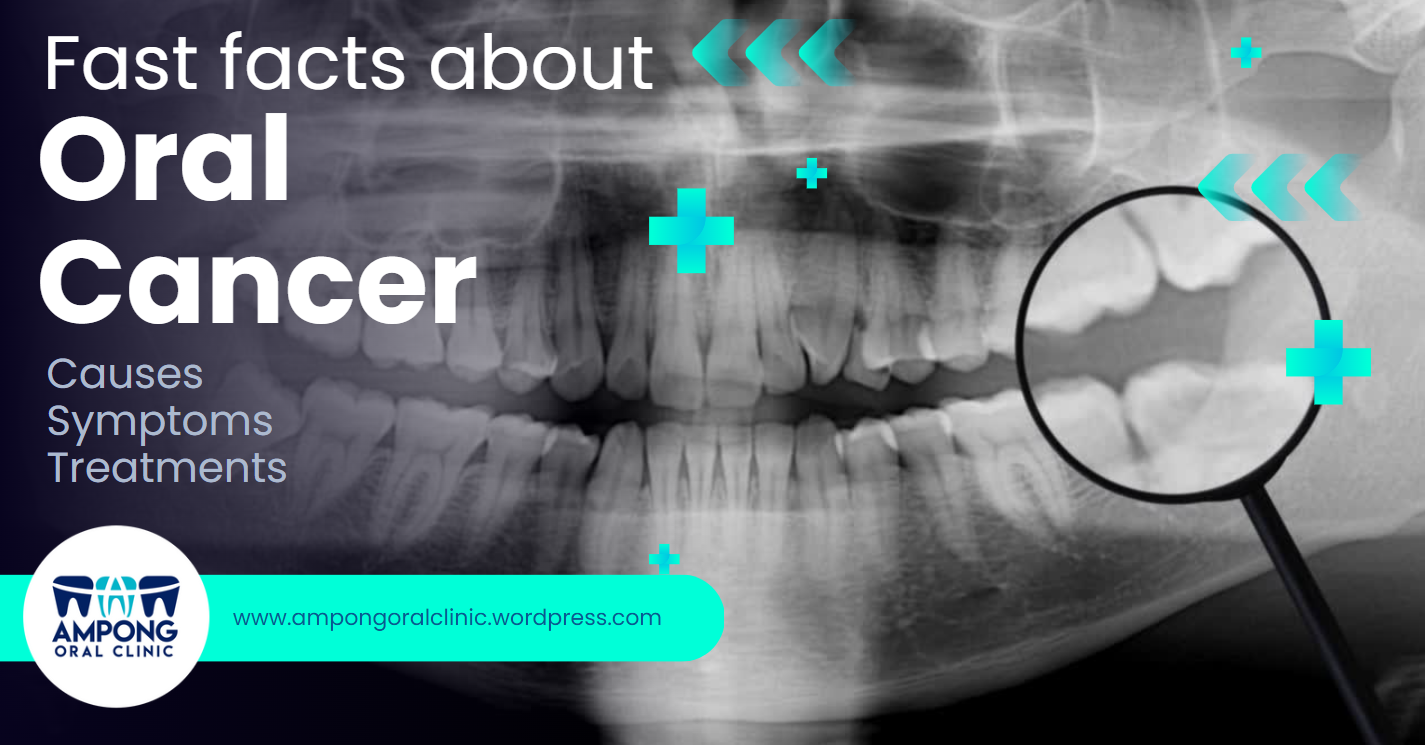Oral cancer is a type of disease that develops in any part of the mouth, including the lips, tongue, gums, and the lining of the cheeks. It is a serious and potentially life-threatening condition that requires early detection and treatment. In most cases, this cancer may not cause any noticeable symptoms in the early stages unless regular checkups by a dentist become part of the routine.
Facts About Oral Cancer:
According to the latest World Health Organization data published in 2020, This cancer is common in developing countries located in Southeast Asia and its prevalence persists even after migration to developed countries. In the Philippines, Oral Cancer Deaths have reached 2,916 or 0.43% of total deaths. The age-adjusted Death Rate is 3.74 per 100,000 of the population ranking the Philippines as the 62nd country in the world next to France and Lesotho. It was estimated that one in every 1,800 Filipinos will develop cancer per year due to late diagnosis. The health-seeking behavior of Filipinos shows that those who suffer from cancer seek medical assistance only in the advanced stages of the disease. The oral cavity, along with lung, breast, cervix, liver, prostate, stomach, colon and rectum, and ovary are the leading sites of cancer in the Philippines, which makes Oral cancer the 8th leading type of cancer in the country based on the University of the Philippines research in 2019.
Causes of oral cancer:
The exact cause of oral cancer is not known. However, certain risk factors have been identified that can increase the likelihood of developing oral cancer. These risk factors include smoking or chewing tobacco, excessive alcohol consumption, exposure to sunlight, and a family history of cancer. Other risk factors include a weakened immune system, poor oral hygiene, and a diet lacking in fruits and vegetables.
Symptoms of oral cancer:
The symptoms of oral cancer can vary depending on the location and stage of cancer. Some common symptoms include a sore in the mouth that does not heal, a lump or thickening in the cheek or mouth, difficulty swallowing or speaking, persistent mouth pain, and a persistent sore throat. Other symptoms may include a change in the way the teeth fit together, numbness in the mouth or lips, ear pain, unexplained weight loss and a white or red patch on the gums, tongue, or lining of the mouth.
Diagnosis of oral cancer:
If there are experiences with any of these symptoms, it is important to see a doctor or dentist as soon as possible. To diagnose oral cancer, the doctor or dentist will perform a physical examination of your mouth, throat, and neck. They may also order imaging tests, such as X-rays, CT scans, or MRI scans, to get a better look at the affected area. In some cases, a biopsy may be necessary to confirm the diagnosis.
Treatment options for oral cancer:
The treatment options for oral cancer will depend on the stage and location of cancer. Surgery may be necessary to remove the cancerous tissue, along with any nearby lymph nodes. Radiation therapy may also be used to destroy cancer cells, particularly if cancer has spread to nearby lymph nodes or other tissues. Chemotherapy, which uses drugs to kill cancer cells, may also be used in combination with surgery or radiation therapy. In some cases, targeted therapy may be used to treat oral cancer. This involves using drugs that specifically target cancer cells while leaving healthy cells intact. Immunotherapy, which works by boosting the immune system’s ability to fight cancer, may also be used in some cases.
Prevention of oral cancer:
There are several things you can do to reduce your risk of developing oral cancer. These include avoiding tobacco use, limiting alcohol consumption, wearing protective clothing or lip balm when spending time in the sun, maintaining good oral hygiene, and eating a healthy diet rich in fruits and vegetables. It is also important to see your dentist regularly for check-ups and cleanings.
Conclusion:
In conclusion, oral cancer is a serious condition that requires early detection and treatment. Suppose you experience any symptoms of oral cancer, such as a sore in the mouth that does not heal, a lump or thickening in the cheek or mouth, or difficulty swallowing or speaking. In that case, it is important to see a doctor or dentist as soon as possible. With early detection and treatment, the prognosis for oral cancer can be positive.
